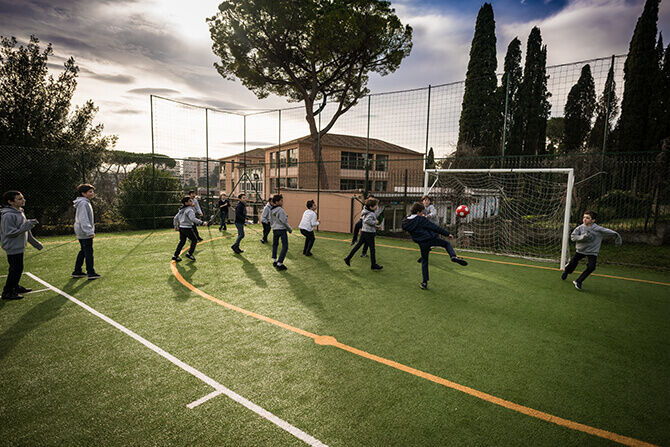Education in Europe
Helping a family to find a good school in their new location has never been more important. Time and again, research has proved that poor family adjustment is one of the biggest causes of assignment failure. We offer advice from school leaders and education consultants on choosing a school in Europe.
Which school system?
Europe’s state-education systems differ enormously. Students will be required to have a working knowledge of the relevant country’s language if they are hoping to attend a local school, although there are a small number of state-funded bilingual schools in some European countries (the Netherlands, for example), which may also teach in English. If budget allows, relocating families may prefer the option of an established international school. International schools typically provide an English-medium education, often with globally recognised curricula and high standards of teaching and learning. They welcome children of many different nationalities.
If budget allows, relocating families may prefer the option of an established international school. International schools typically provide an English-medium education, often with globally recognised curricula and high standards of teaching and learning. They welcome children of many different nationalities.A growing demand for school places
With the Brexit deadline pushing some multinational companies to relocate staff out of London, certain European cities are seeing a growing demand for school places.Deutsche Bank has been block-booking hundreds of international school places in Frankfurt as it prepares to relocate some of its staff and – as a Brexit relocation hotspot – the city is seeing unprecedented demand for school places. According to ISC Research the seven current international schools cater for 4,100 students but demand is likely to see schools expanding and new campuses opening.The picture is similar across Europe; with the European Medicines Agency (EMA) relocating to Amsterdam in 2019, international schools in the Netherlands are preparing themselves for a wave of applications.Paris is also preparing for an influx of high-earning employees relocating to the city, with an estimate of 10,000 jobs moving, many bringing with them families with school-age children. With banks such as Goldman Sachs preparing to relocate staff to the city, the International School of Paris, an IB World School, has already seen an increase in enquiries. With quite fortuitous timing, it will be opening a new middle school campus in September 2018 that will cater for an additional 350 students.With the world’s spotlight firmly on Brexit locations, it is advisable that families on a relocation to the region contact schools as soon as their assignment is confirmed to ensure that they don’t miss out on places.International accreditation
When it comes to selecting an international school overseas, it is important to look for a school that is a member of a respected organisation such as COBIS (the Council of British International Schools) or CIS (the Council of International Schools).Visit the schools
No matter how much information about their preferred schools families gather in advance, there is no substitute for visiting a school in person.Sue Dunnachie, marketing consultant at Mougins School, on France’s Côte d’Azur, offers some advice on what parents on a school visit should look out for.“Much depends on the atmosphere amongst the staff and students and the welcome one receives,” she says. “Does the admissions department spend time with the family, show an interest in the student as an individual, and give realistic answers to any questions they may have? Is the headteacher prepared to take the time to see you? Are you able to see classes at work and check the school facilities? Is extra tuition given to students for whom English is a second language, or who have some learning difficulties?“How much importance is placed on those subjects that are not purely academic, such as sport, music, art and theatre? It is vital to remember that, although the academic achievements of a student are important, other qualities will form the confident young adult ready to face the challenges which lie ahead.”Typically, international schools are well set up to receive relocating pupils, and have systems in place to help children settle in quickly and painlessly, but this should never be taken for granted.“Moving is an emotional experience and how transitions are dealt with will have a huge impact on the social and emotional aspects of a child’s wellbeing,” says Mary-Lyn Campbell, head of school at Inter-Community School (ICS) Zurich. “The ICS Transition Programme involves the Senior Leadership Team, teachers, staff and the Parents’ Association (PA) and its purpose is to ease the transition and offer students and families a successful start at ICS.”David Willows, director of admissions and advancement at the International School of Brussels, believes that schools are a bit like people. “They all have ‘personalities’, generating a particular feeling or atmosphere, which goes way beyond a simple analysis of the curriculum offered, the number and range of sports teams, or success in getting kids into the best colleges.”He adds, “In the end, the best schools are not out there giving you the ‘hard sell’, even in times of global financial crisis; they are simply wanting to help you choose the best school for your child – even if it isn’t theirs!”Don’t forget the parents
Sue Dunnachie argues that relocating children are likely to settle and find their feet in their new surroundings faster than their parents, so it is wise to look out for a school with a good support network for the whole family.“Children have a facility to adapt which does not always come so easily to adults,” she says. “As soon as friendships are formed, life becomes easier. It can be more challenging for parents, who are dealing with the daily hurdles of life in a foreign language with which they may not be familiar. This is why a welcoming school which offers pastoral care to the whole family is important.”Parent Teacher Associations are a really helpful way of involving the whole family in the life of the school and introducing new starts to the rest of the community. They are useful sources of advice and information for quickly making the new location feel like home.“Before families arrive, our Parents’ Association (PA) reaches out to offer assistance,” says ICS’s Ms Campbell. “Volunteers connect with new families to answer questions about their children’s transitions to their new classes and assist with neighbourhood questions. Language representatives provide invaluable help with translations and organise a number of events to welcome new families to the community.”In the end, the choice of school will be a personal one, and parents will need to make it based on the individual needs of their child. “Above all,” says Sue Dunnachie, “try to make a change of school and country a positive experience. It will offer the chance to establish lifelong friendships that are rich and rewarding.”
Now available as an ebook on Amazon! Simply download from Amazon onto your Kindle, mobile phone or tablet to read wherever you are!
For more education and school related news, visit our Education and Schools pages.Access hundreds of global services and suppliers in our Online Directory© 2018. This article first appeared in the 2016 edition of the Guide to International Education & Schools published by Relocate Global, Spray Hill, Hastings Road, Lamberhurst, Kent TN3 8JB. All rights reserved. This publication (or any part thereof) may not be reproduced in any form without the prior written permission of Relocate Global. Relocate Global accepts no liability for the accuracy of the contents or any opinions expressed herein.


































